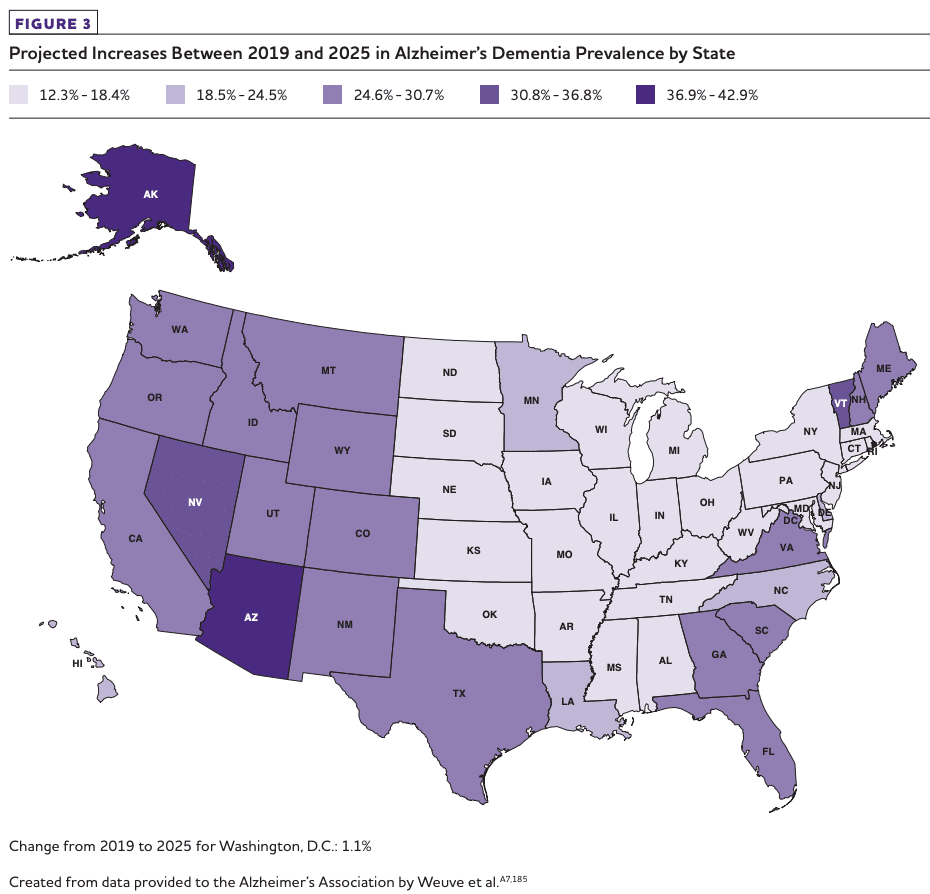By Leah Fein
One in 10, or about 5.8 million, Americans are living with Alzheimer’s disease. This number is predicted to rise to about 14 million by 2050. In Pennsylvania alone, the percentage of people living with Alzheimer’s is expected to increase by 14.3 percent in the next five years, according to the 2019 Alzheimer’s Association Facts and Figures.
Family members, friends, or other unpaid caregivers provide 83 percent of the help to older adults, almost half of which are living with Alzheimer’s or another dementia. This means more than 16 million Americans provide about 18.5 billion hours of unpaid care each year to assist their loved ones with Alzheimer’s or other forms of dementia. All in all, this care is valued at nearly $234 billion annually.
In the end, about 1 in 3 older Americans die with Alzheimer’s disease or another form of dementia.
Despite the rising number of people living with Alzheimer’s or other dementias, only 16 percent of older adults say they receive regular cognitive assessments. At the Penn Memory Center (PMC), we conduct cognitive assessments on a daily basis. For some, these assessments provide guidance for future care and planning. For others, the assessments may be a gateway into research participation. Either way, early detection of cognitive changes provides a number of medical, social, emotional, financial and planning benefits for everyone involved.
